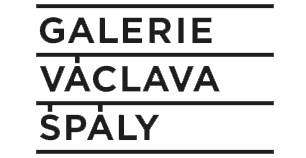
Czech cinema is the name for cinematography of Czech Republic, as well as the Czech cinematography while it was a part of other countries.

Pan Tau is a character created for a children's television series. There were 33 episodes in 3 series made by the Czechoslovak Television (ČST) in cooperation with Barrandov Studios and the West German TV network Westdeutscher Rundfunk (WDR). A pilot film was shot in 1966, and 33 episodes were made from 1970 until 1979. The project ended with a feature film in 1988.

Zorka Janů was a Czech film actress. She was the younger sister of actress Lída Baarová.

František Čáp, also known as Franz Cap in Germany, was a Czech and later a Yugoslav film director and screenwriter. He directed 32 films between 1939 and 1970. Having created Slovene film classics such as Vesna, Ne čakaj na maj and Our Car, he is also one of the most popular directors of early Slovene cinema in 1950s and the 1960s.

Václav Krška was a Czech film director, screenwriter and writer.
The River Is Performing Magic is a 1945 Czechoslovak comedy film directed by Václav Krška.
Silvery Wind is a 1954 Czech drama film directed by Václav Krška based on the novel Stříbrný vítr by Fráňa Šrámek.

The Inspector General is a 1933 Czech historical comedy film directed by Martin Frič and starring Vlasta Burian, Jaroslav Marvan and Václav Trégl. It is an adaptation of the 1836 play The Inspector General by Nikolai Gogol. The director Martin Frič considered it one of his best movies.
Studujeme za školou is a 1939 Czechoslovak comedy film, directed by Miroslav Cikán. It stars Svatopluk Beneš, František Filipovský and Nataša Gollová.
Spring Waters is a 1968 Czechoslovak film directed by Václav Krška. The film starred Josef Kemr.

Černý Most is a large panel housing estate in the north-east of Prague, belonging to Prague 14. At the end of 2013 it was home to 22,355 residents. As well as residential complexes, the area has a large retail park with the same name.
Obrana národa was a Czech resistance organization that fought against the German occupation from 1939 to 1945. It opposed Nazi rule in the Protectorate of Bohemia and Moravia. The group was founded by General Josef Bílý in April 1939.

Man in Demand on All Sides is a 1934 Czechoslovak film, directed by Miroslav Cikán. It stars Ljuba Hermanová, Věra Ferbasová, and Lída Baarová.
Battalion is a 1937 Czechoslovak war drama film, directed by Miroslav Cikán. It stars František Smolík, Helena Bušová, and Hana Vítová.
The Avalanche is a 1946 Czechoslovak crime drama film directed by Miroslav Cikán and starring Otomar Korbelář, Marie Glázrová and Helena Bušová. The film's sets were designed by the art director Jan Zázvorka.

Bohemian Rapture or The Violin and the Dream is a 1947 Czech historical drama film directed by Václav Krška and starring Jaromír Spal, Václav Voska and Karel Dostal. The film portrays the life of the Czech violinist Josef Slavík, a contemporary of Frédéric Chopin, and a rival of Niccolò Paganini.

The Václav Špála Gallery is a Prague gallery of mostly contemporary art. It is located at no. 59/30 Národní třída, in the New Town of Prague. The gallery holds exhibitions particularly of works by living Czech professional artists of the middle generation who are among the best painters, photographers, and sculptors on the art scene today. The exhibitions regularly alternate between works of painting, photography, and sculpture.

The National Assembly was the bicameral parliament of Czechoslovakia from 1920 to 1939, during the First and Second Republics. It consisted of a Chamber of Deputies with 300 members and a Senate with 150 members.

Martina Gasparovič Bezoušková is a Czech theatre and film actress and teacher.

Jana Rybářová was a Czech film and stage actress.













